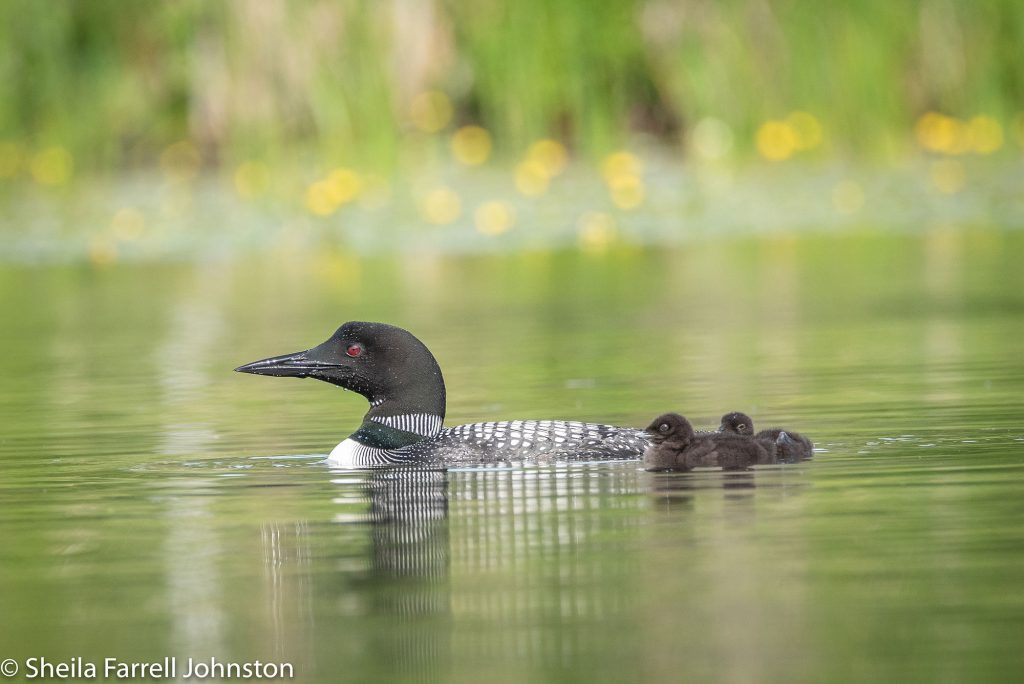Guest article by Sheila Farrell Johnston

There are about 12,000 loons in Minnesota, our land of 10,000 lakes, so it is no surprise that some of them fall victim to illness and injury. The three leading causes of loon deaths are human caused: lead poisoning, boat and jet ski strikes, and fishing line entanglement or hooking. Explosions from private lakeside fireworks displays also pose a grave danger to loons and can injure or kill them. Chicks can be lost after separating from parents in the chaos.
Volunteers are Needed and Lake Associations Can Help Too!
Minnesota has excellent wildlife rehabilitation clinics that are well prepared to care for sick or injured loons, and orphaned chicks that are brought to rehab. However, rehab clinics usually do not do capture and transport. There are very few volunteers in Minnesota to rescue sick or injured loons and transport them to the clinics. Wildlife Rehabilitation and Release has an excellent all-volunteer wildlife rescue team that is based in the Twin Cities metro. Wildlife Rehabilitation and Release, 612 822-7058, wrr-mn.org Within 1.5 hours of Twin Cities Metro
They are stretched thin, and they are usually unable to rescue loons out-state where most of the loons reside and are found in trouble. Last summer a skeleton crew of north-central Minnesota loon rescue volunteers received 4 to 10 calls a week of loons in need of rescue state-wide! It was impossible for them to help all the loons! Volunteers are needed and lake associations and individuals can help!
Loon Rescue and Transport Webinar
Kevin and Linda Grenzer, of Loon Rescue, Inc., have been rescuing loons and other birds in need of help since 2013. This husband and wife duo specializes in rescuing loons all year long, including ice rescues. They are nationally respected loon rescue experts.
After watching the webinar, please consider filling out the survey located here:
Please share the information about the webinar with loon loving friends and lake association members. As Linda and Kevin Grenzer say, “When you save one loon, you are saving future generations of loons!”
